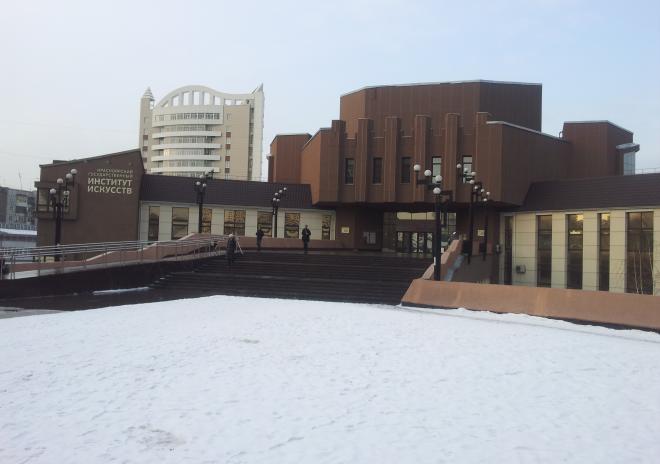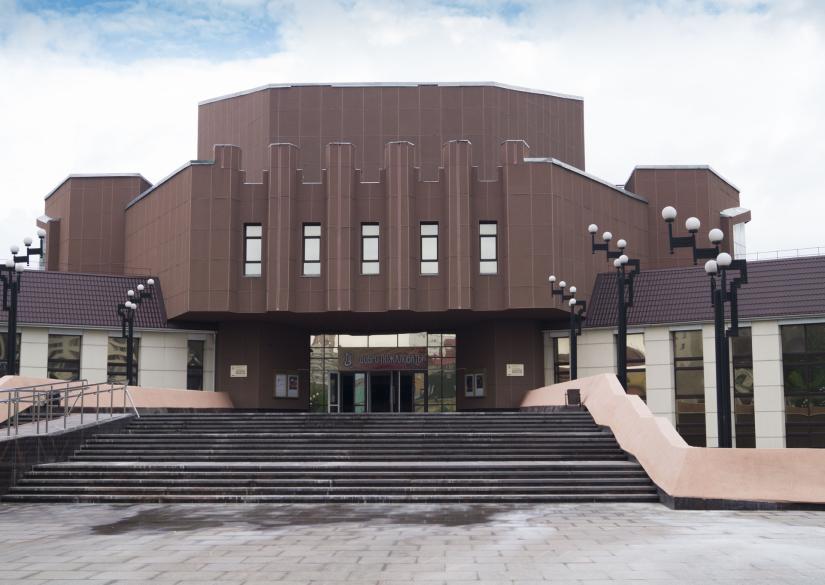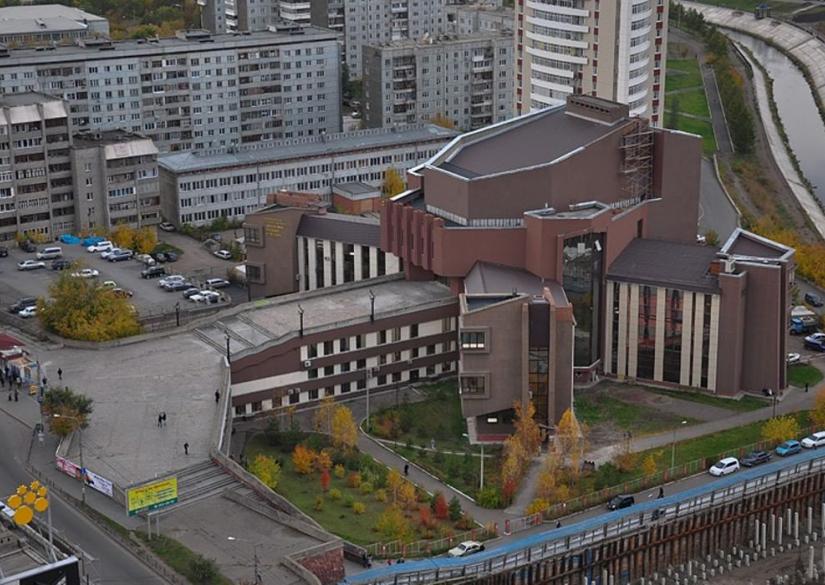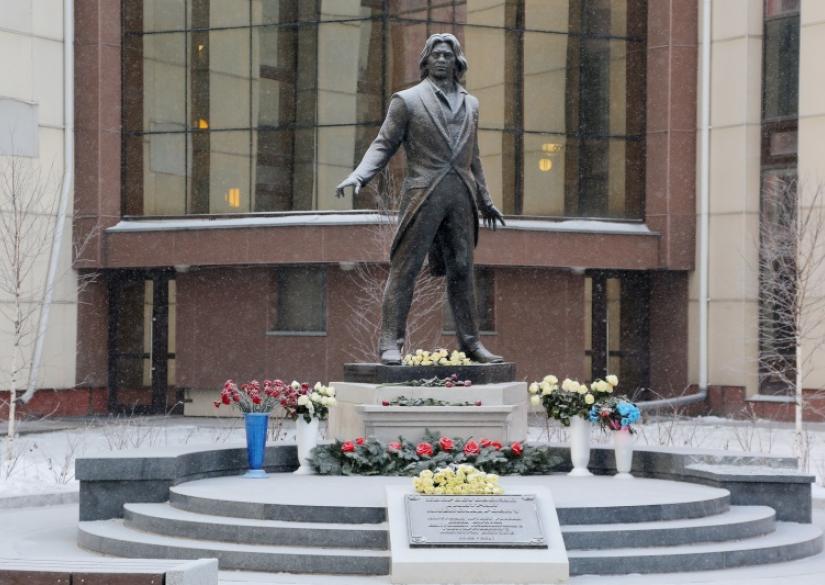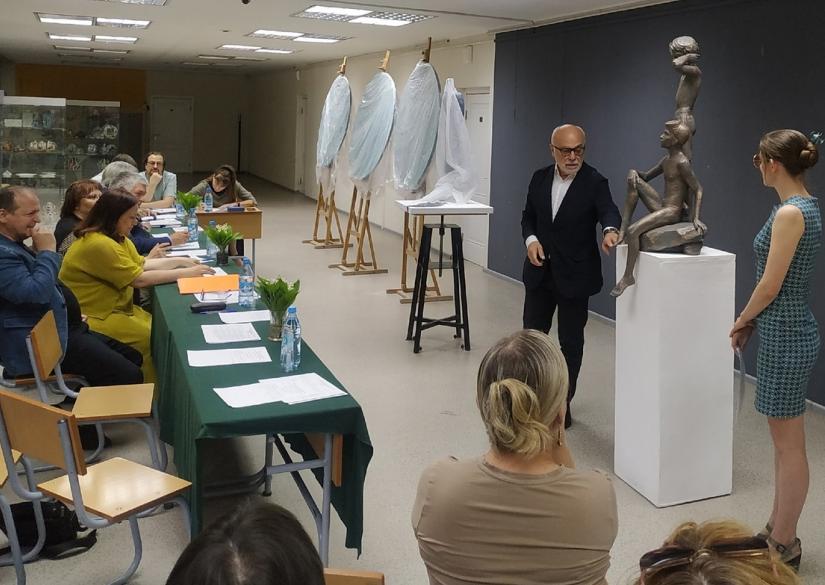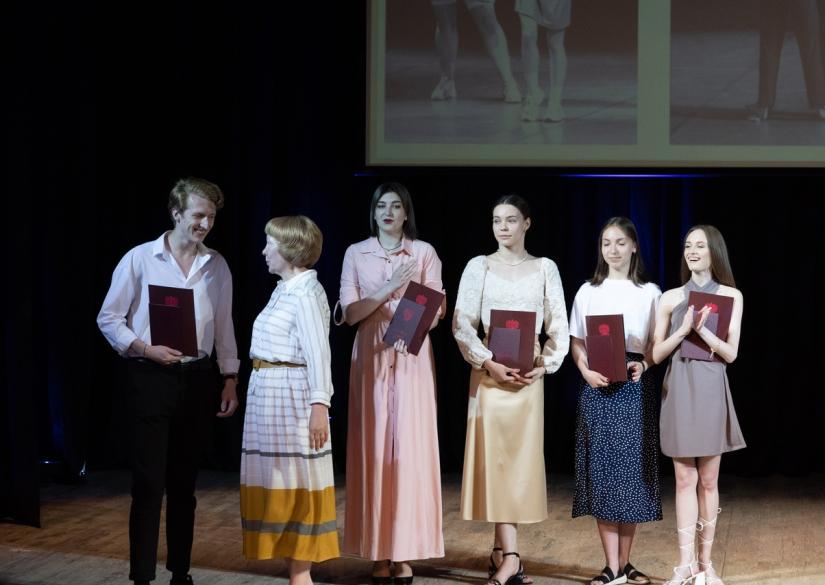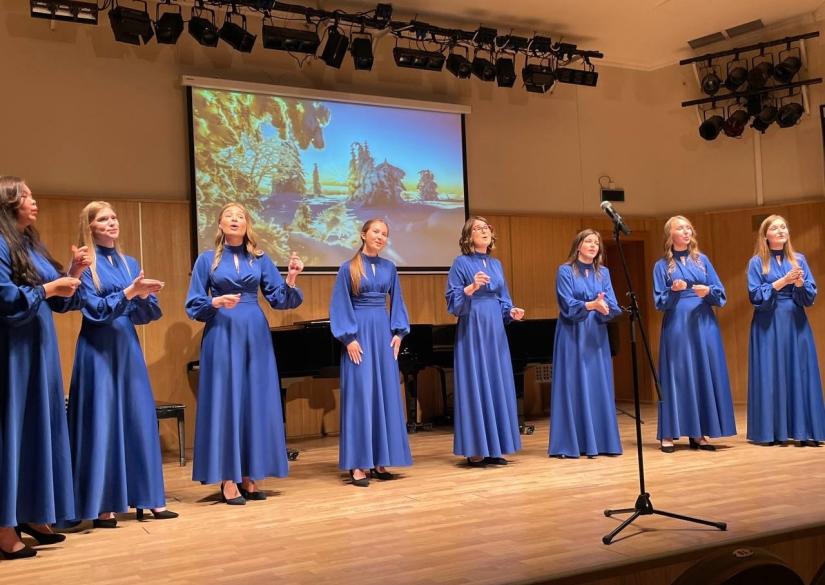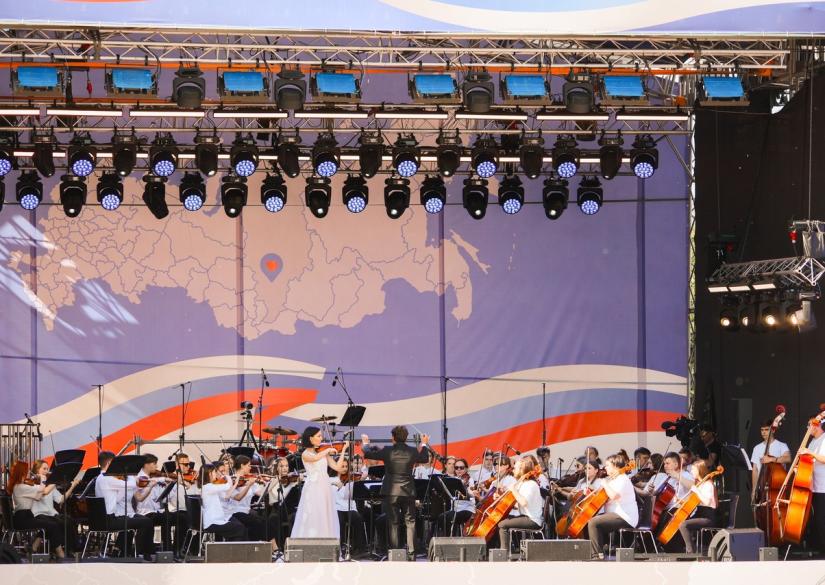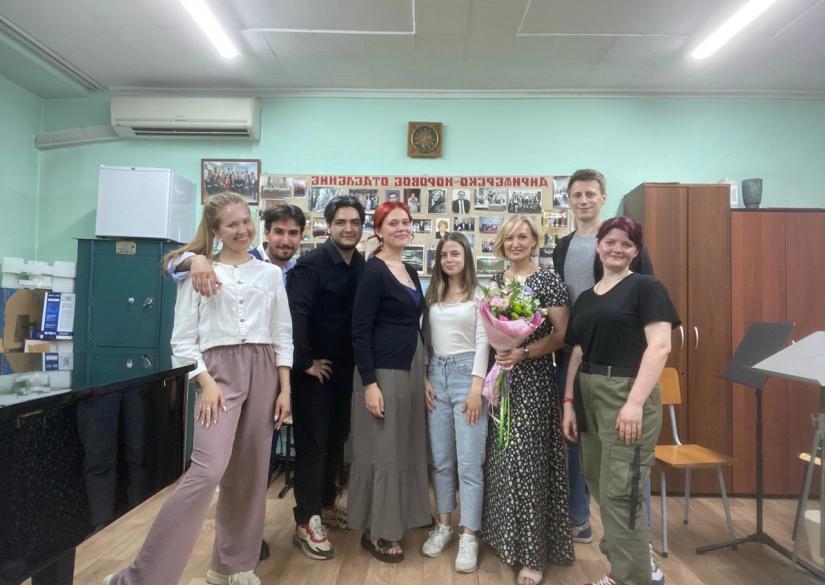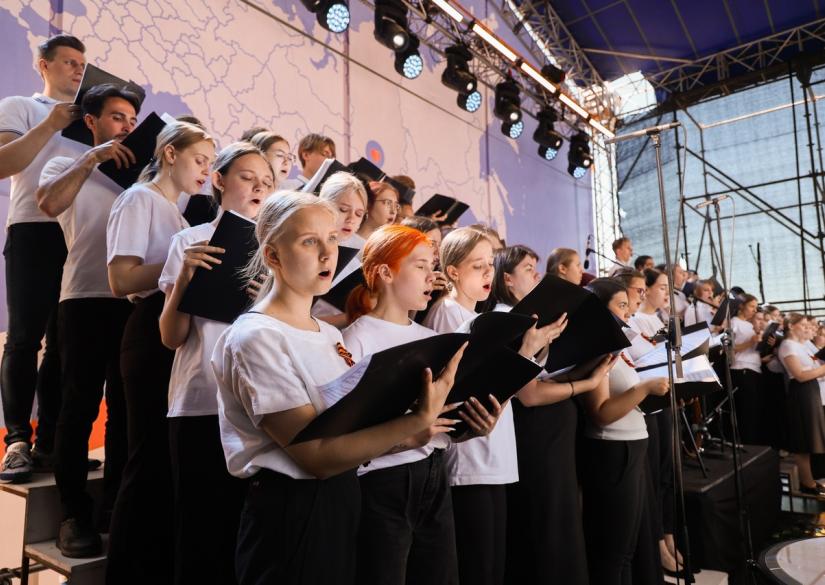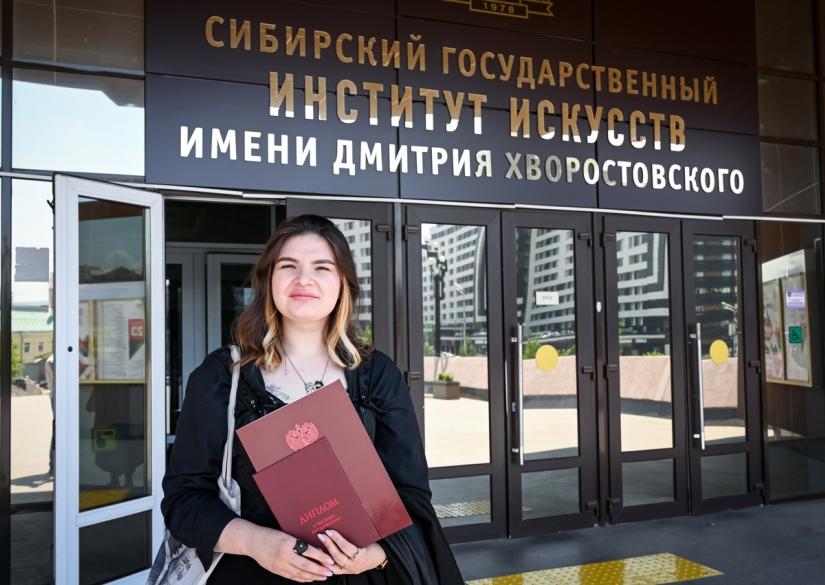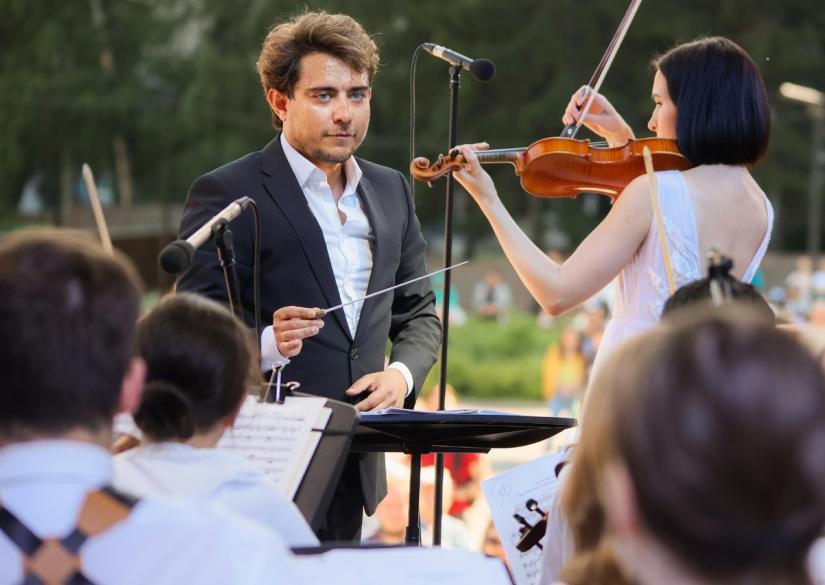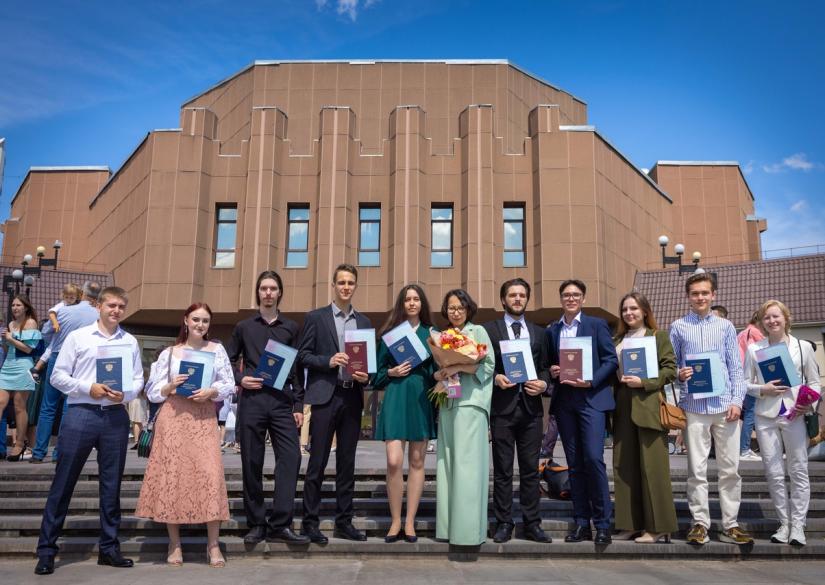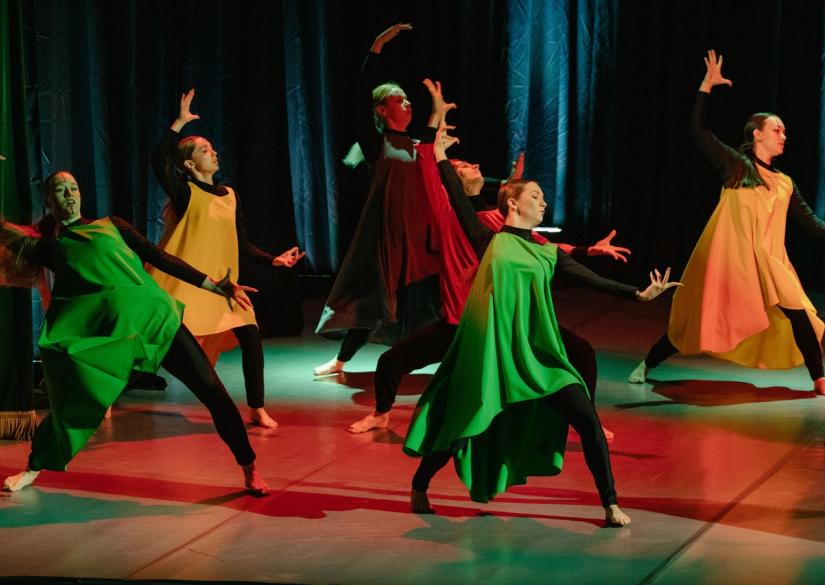Siberian State Institute of Arts named after Dmitri Hvorostovsky, SGII
Programs and prices, tuition fees in Siberian State Institute of Arts named after Dmitri Hvorostovsky, SGII
Bachelor
- Age - from 17 years,
- The term of study is 4-5 years.
Specialty:
- Folk art culture,
- Choreographic art,
- Musical and instrumental art,
- Vocal art,
- The art of folk singing,
- Conducting
- Musicology and Applied Music,
- Design
- Arts and crafts and folk crafts.
Speciality
- Age - from 17 years,
- The term of study is 5-6 years.
Specialty:
- Sound engineering of cultural performances and concert programs,
- Acting,
- The art of concert performance,
- Artistic direction of the Opera and Symphony Orchestra and Academic Choir,
- Musical and theatrical art,
- Musicology
- Composition
- Painting
- Graphics
- Sculpture.
Master
- Age - from 21 years,
- The term of study is 2 years.
Specialty:
- Folk art culture,
- Musical and instrumental art,
- The art of folk singing,
- Musicology and Applied Music,
- Design
- Arts and crafts and folk crafts.
Postgraduate study
- Age - from 21 years,
- The term of study is 2-3 years.
Specialty:
- Theory and history of culture, art,
- Musicology, conservation and restoration of historical and cultural objects,
- Types of art.
Assistantship-internship
- Age - from 21 years,
- The term of study is 2 years.
Specialty:
- The art of musical and instrumental performance,
- The art of vocal performance,
- The art of painting,
- The Art of Graphics,
- The art of sculpture.
Description of Siberian State Institute of Arts named after Dmitri Hvorostovsky, SGII
- Location: Krasnoyarsk, Russia,
- Age of students: from 17 years,
- Type: mixed,
- Language of instruction: Russian.
The Institute was founded in 1977 in the city of Krasnoyarsk.
Educational process
The learning process includes a course of lectures and seminars, practical and laboratory classes, educational and pre-diploma practice.
Faculties and colleges
The educational process is organized at the following faculties:
- Musical
- Theatrical and choreographic arts,
- Artistic.
Scientific achievements
The Institute conducts research activities in the following areas:
- Philosophical and aesthetic problems of art and cultures,
- Folk art and folk art,
- Exploration of the art of Siberia,
- Theory, methodology and practice of musical, performing, visual, theatrical and choreographic arts, the relationship between culture and economy of the macroregion.
Things to know about
The university conducts international cooperation with the following organizations:
- Academy of Music in Kraków,
- Chunqin Normal University,
- Harbin Institute of Design and Arts, Harbin University,
- Liaoning University of Science and Technology,
- Inner Mongolia Normal University,
- Hulunbuir Institute,
- Gonchisumliy College of Music and Choreography,
- Kazakh National Conservatory named after Kurmangazy,
- Center for International Programs of the Ministry of Education and Science of the Republic of Tajikistan,
- Vanadzor State University after Hovhannes Tumanyan.
Accommodation, meals, prices
For nonresident full-time students, the university provides a dormitory for 576 places.
For meals for students and staff, the university has a canteen for 120 seats.
Activities Siberian State Institute of Arts named after Dmitri Hvorostovsky, SGII
To involve students in social and scientific activities, the university organizes and takes part in the following events:
- project "Music Za Pobedu",
- Round table: "Vladimir Kulikov is a teacher-mentor",
- All-Russian Forum of Wind Music "Yenisei Fanfare",
- The project "Educational and Creative Cluster of Yenisei Siberia: To the 60th Anniversary of the Birth of People's Artist of the Russian Federation Dmitry Hvorostovsky",
- Round table "Modern technologies of art-therapeutic practices: experience and results",
- Exhibition of works by teachers of the department "Graphics".
Facilities and equipment at Siberian State Institute of Arts named after Dmitri Hvorostovsky, SGII
The educational process takes place in three educational buildings, equipped with classrooms for lectures, seminars and practical classes. The classrooms are equipped with modern technology: projectors, screens, computers and electronic whiteboards.
Students have access to two educational libraries with reading rooms for 156 seats.
For sports are provided:
- Gym
- Gym
- An outdoor stadium of a wide profile with elements of an obstacle course.
Admission dates and extra charges
At the institute, the academic year is divided into two semesters: autumn and spring. At the end of each of them, an examination session is held, after which students are given a vacation (in winter in January, in summer in July and August).
Additional expenses:
- Residence
- Transport
- Nutrition
- Leisure and recreation.
Enrolment process
For admission to the institute, you must provide:
- Proof of identity, citizenship,
- State-recognized certificate of education and qualifications,
- Confirmation of registration in the system of individual (personalized) accounting (if any),
- Reference 086-U.
If necessary, the applicant also provides:
- Proof of use of the right to admission within a special quota,
- Confirmation of individual achievements, the results of which are taken into account at admission,
- Proof of disability or disability.
- 2 photos 3x4.
The necessary package of documents is provided to the university:
- By mail,
- In person to the admissions office,
- Through EPGU.
Enrolment statistics
At the moment, more than 800 students study at the institute.
Perspectives
Upon completion of education at the institute, graduates become qualified specialists in the field of art.
Entry requirements, how to apply, what is required to enrol
For admission to bachelor's and specialist's educational programs, an applicant must:
- Completed education not lower than secondary general,
- Points for entrance examinations conducted by the institute itself are not lower than 50:
- Creative challenge,
- Professional test,
- Interview.
- Points received for the exam are not lower than:
- Russian language — 40,
- References: —40.
For admission to master's programs, you must:
- Completed higher education,
- Successful completion of the entrance examinations of the university with scores not lower than the threshold set by the institute itself.
For admission to postgraduate programs, you must:
- Completed higher education,
- Successful completion of entrance examinations with scores not lower than the threshold set by the institute itself:
- Special discipline,
- Philosophy
- Foreign language.
Scholarships Siberian State Institute of Arts named after Dmitri Hvorostovsky, SGII
The following types of scholarships are distinguished:
- State Academic,
- State social,
- of the President of the Russian Federation,
- Government of the Russian Federation,
- Registered
- Students of the preparatory department.
In addition, the university provides financial assistance to students in need.
Institution on the map
Residence permits, citizenship and other services
- Guardianship services during the studies
- Student supervision
Review about Siberian State Institute of Arts named after Dmitri Hvorostovsky, SGII
Recommendations on when to apply
| Language courses, schools and children's language camps | Primary and secondary education - private schools | Preparation programmes for entering universities - higher education | Higher education (after completing accredited programs A-level, IB, High School) - Bachelor, Master, MBA |
| - we recommend to apply 6-9 months before the start of the course (some camps and schools offer discounts for early booking or for lengthy study programs) - there are some very popular and high demand children's camps, where the applications need to be submitted 1 year in advance (in particular Switzerland , Great Britain , USA , Canada , Austria) | - we recommend to apply one year before the start of the training program, - some schools have a specific time frame (September-November - please specify an individual school) - some schools require tests in several stages (UKISET, internal tests of the school: English, mathematics, logics, subjects, interview, some require a personal visit) | - we recommend to apply one year before the start of the program, - for Foundation and Pathway programs, IELTS and TOEFL certificates are usually required, respectively | - recommended submission one year before the start of the program, - the deadline normally closes in January, for TOP HEIs and, as a rule, in March in other universities - for a bachelor, a Foundation or Pathway preparatory program a completed A-level, IB, High School + IELTS / TOEFL are required - for Masters you need a graduated higher education, in some cases you need a pre-Masters program - MBA requires completed higher education, work experience preferably at least 2-3 years, etc. |


